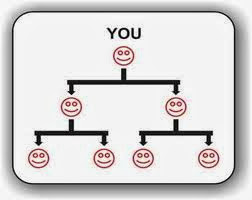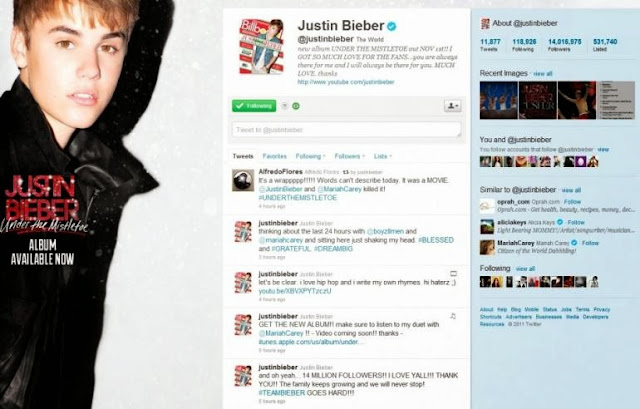Overview
The relationship between social networking and almost every industry is a formidable one. In the world of gaming, platform-wide, social networking is paramount. it not only contributes to the sales of games but also, information, awareness and interactivity. Sometimes social media strategies are deliberately employed by the organisation, other times the company says little in the hope the people interacting do all the talking for them. If the game or the console has huge fan appeal such as a new console from Microsoft or Sony, or a game like in the Call of Duty or Grand Theft Auto series, some of the best selling games ever, their reputation usually precedes them, leaving everything to the gamers and little for the organisation to do.
These days you can find information about a game or console on almost any social network. In some way, somehow someone will be discussing it. Social networking sites such as Facebook, Twitter and Youtube are some of the most popular sites in the business. According to the traffic monitoring website, Alexa, these sites feature in the top 10, with the most traffic, in the majority of countries around the world. Gamers use these platforms to interact with one another about their daily actions, including some of the games they are playing.
Social Networking and the Gaming World
Many organisations use Facebook. The reasons why they set up Facebook vary. Some use Facebook solely to inform users about the organisations ethical positives. Others to promote products. It varies from organisation to organisation, but it still spreads a message and is a means of interaction between the user and the organisation. Using Facebook, users will update the people in their social network via status' telling their network what they're doing. If a user has 300 friends on Facebook, then that enables 300 friends to see what that person is doing. One could never estimate how many users will interact with the user once the status is updated, but one could pretty much guarantee that a number of people would have seen it. From a gamers perspective, a status about a highly anticipated, upcoming game could possibly encourage people to interact with the author of the status for the sake of the common interest. The sharing factor about social networking also makes the amount of interaction increase. With one click of the 'share' button on most devices, users can spread information from one site, or one social network to another. An example of how a gamer would use this, is when they find clips of a game on Youtube website, then post the link or 'share' it to another site such as Facebook or Twitter. Cross social networking brings two types of audience together. It brings the audience from one social network to another, effectively acting as the digital word of mouth. Gaming organisations also have their own social networking accounts. Game console manufacturers such as Sony and Nintendo have social networking accounts. I personally see Nintendo tweet using their Twitter account to promote the products developed by themselves. Popular game developers such as Rockstar, Activision and EA Sports have accounts to promote their products on. Even more specific, are the actual games that the companies make Twitter accounts for. These accounts are likely to be regularly updated until the game has reached the declining stage in the product life cycle.
Internal social networks
XBOX Live
The popularity of social networks a have inspired many console platforms to both replicate and enhance the gamers experience, in order to help spread the word about a console or game. In my opinion no game console giant has done this more so than XBOX. XBOX has fully embraced the realm of social networking for two reasons. One is because they have integrated popular social networking sites as applications on XBOX consoles. You can write Facebook status' from the console, tweet on the Twitter and watch unlimited amounts of video on the Youtube application. The XBOX Live experience allows users to see what other gamers are playing and interact with them how they please, whether it be through video via Kinect or audio only, with the use of headsets. The system allows conference conversations for up to 5 people at once. Users can even message each other through a text based system using only XBOX to XBOX communication. All these features allow the user to be more social than ever and provide many different ways to socialise with friends.
Playstation Network
Playstation Network, on Sony's Playstation 3 and handheld systems are very similar to what the XBOX offers, give or take away a few features. The big benefit of Sony having the Playstation Network, available on home and handheld console is that, no matter what the choice of console users can still interact. For example, Sony allow users of the PS3 and the Playstation Vita to interact as both are part of the Playstation Network. When signed into the Playstation Network, users display what games they are playing. When a game is released such as how Grand Theft Auto 5 was on the 17th September, many people were online and shown to be playing it. The fact that as a user of the Playstation Network myself, I could see all these people playing the same game as me and it builds an atmosphere of social involvement, which I guess is what it is designed to do. I could then message the players of Grand Theft Auto 5 to ask them for hints and tips to get through the game.
Miiverse
Onto the last major player in the game, if you would excuse the pun, is Nintendo. They have their own fully integrated social network called 'Miiverse'. Miiverse is a totally new experience to the other social networks. The reason why is because it is actually a fully fledged social network much like Facebook or Twitter, the only difference is that it is completely exclusive to Wii U owners. Miiverse offers the user an experience that gives gamers their own forums categorised by the games released on Wii U. It means gamers can interact with people playing the same games as they are. They can post screen shots of how far they are in the game and ask how to get past these levels, bosses etc. Miiverse allows users to post artwork drawn on the Wii U gamepad and share it in their communities. Another impressive feature that Miiverse has, is the fact the it can be accessed through browsers many users on their home computers, such as Chrome and Internet Explorer, and also has an app for smartphones, to keep up with peers on the go. In addition to its own fully integrated social network, Miiverse also has a Youtube app. In all honesty there is no difference in the Youtube applications boasted by the 3 main home consoles.
Many people across the world prefer the XBOX Live social experience to the other consoles available. Some say that this was a factor in them purchasing the console in the first place. However in my personal opinion, being an owner of all 3 of the major home consoles, Miiverse's social experience blows the XBOX Live experience out of the water because it's more like a conventional social network like the Twitter and Facebook's.
As the world becomes increasingly immersed in everything social, opening the way they live their lives to many, it's highly likley that gaming will continue to use social networks in their own unique ways. I can predict that game consoles will continue to operate in this way. With a good business head and a minimal amount of knowledge of the industry, it is easy to tell that businesses will always, at least from here on, incorporate social networking into their consoles. The fact that gaming consoles nowadays do not only sell because of the games that they produce, like they did in previous gaming generations, means that there are various extra factors that convince a potential customer into becoming a buyer of the product and then a loyal customer.
Thanks for reading this post. For constructive feedback and criticism follow me on Twitter @Allenbusiness or on Google+ / LinkdIn 'Anthony Allen' or comment down below




